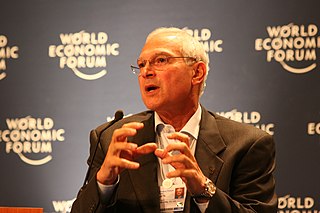A Quote by Jeff Bezos
Infrastructure web services had to happen.
Quote Topics
Related Quotes
Anybody who can afford a box of business cards can afford a Web site. Any company with an 800 number can move its services to the Web for peanuts by comparison. The extreme case of corporate promotion is to strip away all other aspects of your business and sell goods or services via the Net alone, as amazon.com has done with books.
The Web took off in all its glory because it was a royalty-free infrastructure . . . When I invented the Web, I didn't have to ask anyone's permission. Now, hundreds of millions of people are using it freely. I am worried that that is going to end in the U.S.A. If we had a situation in which the U.S. had serious flaws in its Net Neutrality, and Europe did have Net Neutrality, and I were trying to start a company, then I would be very tempted to move.
Most governments want their citizens to be part of the financial system, to be productive citizens as a result of having access to be able to manage and move money in a seamless way. But the traditional financial services infrastructure is not designed to handle that because, predominantly, it's an expensive infrastructure.
One of the big changes at the heart of Web 2.0 is the shift from the creation of software artifacts, which is what the PC revolution was about, to the creation of software services. These are services that ultimately, if they are successful, will require competencies of operation, of scale, and the like.
The United States has an unfair advantage, as most of the popular cloud services, search engines, computer and mobile operating systems or web browsers are made by U.S. companies. When the rest of the world uses the net, they are effectively using U.S.-based services, making them a legal target for U.S. intelligence.

































